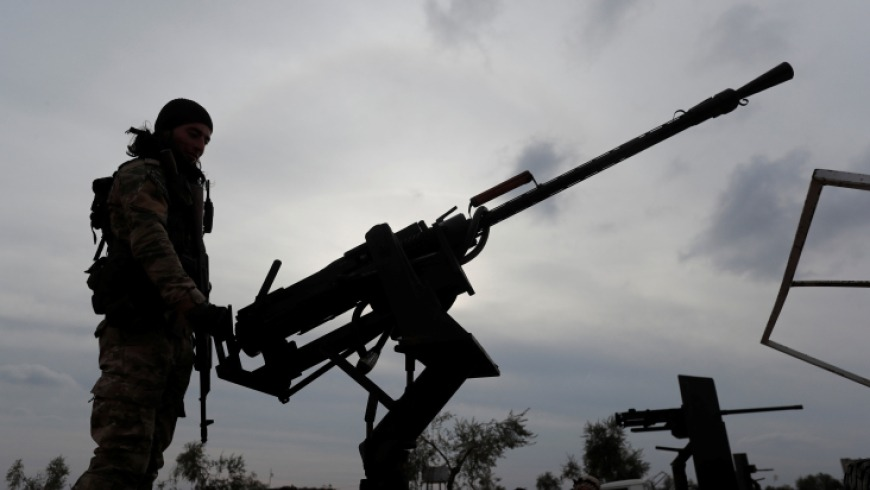
A military commander close to HTS told Syria TV that preparations are underway, including planting defensive mines and cancelling leave for its members.
A military source in northwestern Syria reported on Sunday to North Press that Hay’at Tahrir al-Sham (HTS, formerly known as al-Nusra Front) is preparing for a military operation against government forces in the Aleppo countryside. This comes in light of recent Israeli escalations in southern Lebanon and against Iranian sites in Syria.
A military commander from the al-Fateh al-Mubin operations room, which includes hardline factions allied with HTS, noted that preparations are underway, including planting defensive mines and cancelling leave for its members.
In addition, military alerts have been observed in the western countryside of Hama, the contact lines in Jabal al-Zawiya south of Idlib, and in Taftanaz, Neirab, and Saraqeb in eastern Idlib. The source indicated that these preparations are occurring with Turkish approval, although the timing of the potential military operation remains unclear.
Local sources reported that residents of several villages near the contact lines with government forces have been displaced to safer areas. Since the morning, there has been a noticeable increase in flights of warplanes and drones over northwestern Syria, while government forces have intensified their artillery and air bombardments in the past two months.
Why fight now?
Rashid Hourani, a researcher at the Jusoor Center for Studies, believes the opposition factions are seizing a crucial opportunity presented by Hezbollah’s vulnerability to Israeli strikes. This situation could force Hezbollah to withdraw its fighters from Syria, particularly from the northern fronts, which Russia aims to prevent. To complicate matters, Russia is claiming that Ukraine is training fighters from HTS.
Hourani argues that the opposition’s current military operations aim to minimize potential losses from Russian air intervention. He bases this perspective on the recent arrival of Turkish army leaders in Idlib.
He contends that the opposition factions have significantly improved their military and combat capabilities since the March 2020 agreement between Russia and Turkey. Evidence of this development includes their successful responses to infiltration attempts by Assad regime forces along contact lines and their operations behind enemy lines in Hama, Aleppo, and Lattakia. These operations demonstrate that the factions have acquired special forces-like skills, such as conducting nighttime missions, effective reconnaissance, and well-organized assaults, support, and withdrawal maneuvers, often without incurring casualties. This indicates a high level of training among faction fighters and a marked weakness in regime forces.
